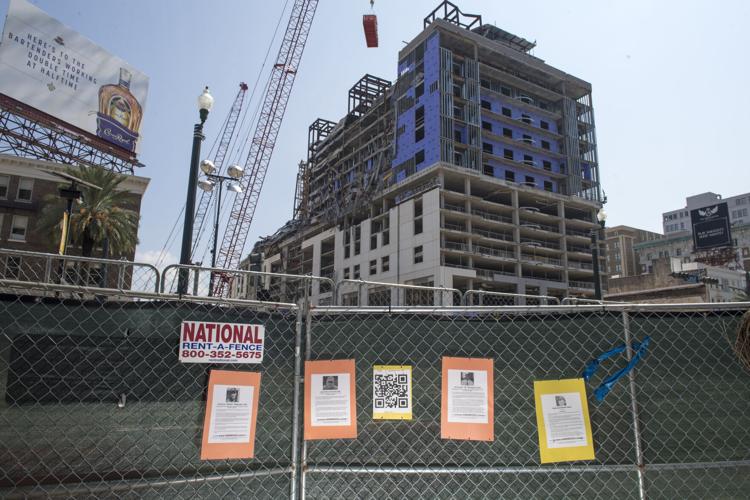Nearly a year after the top floors of the Hard Rock Hotel collapsed, killing three workers, injuring 18 others and straining city resources, New Orleans’ government has sued the building’s owners for costs the city incurred.
The lawsuit, filed Tuesday in Orleans Civil District Court, lays blame for the catastrophe squarely on Hard Rock owner Mohan Kailas and his partners, as well as the building's engineers and contractors. The development group, known as 1031 Canal Development LLC, has failed to cover at least $12 million the city has spent thus far to respond to the collapse and ensure the unstable building did not imperil people and property in the area, officials said.
“Our city was harmed. Our people were killed. No amount of delay or denial or excuses can change that fact — and we will not allow those responsible to evade responsibility for the damages they have caused to our city,” Mayor LaToya Cantrell said in a statement after the lawsuit was filed.
A spokesperson for 1031 Canal declined comment, saying the group had not yet seen the city's lawsuit.
The lawsuit, which comes just a week after the last body was removed from the wreckage, joins others filed in recent months by dozens of injured construction workers, by the families of three workers who died when the building’s upper floors fell, and by neighboring businesses who lost revenue when the disaster halted their operations.
The October 2019 collapse crushed and killed construction workers Jose Ponce Arreola, Quinnyon Wimberly and Anthony Magrette, derailed economic activity in the area surrounding the collapse months before the pandemic choked the city’s overall economy, and forced the city to redirect public safety personnel to monitor and clean up the site.
The federal Occupational Safety and Health Administration has cited the building's engineers, Heaslip Engineering LLC, for failing to properly design beams and load-bearing structures on the upper floors of the hotel. Another 10 companies involved have been hit with a range of safety violations.
Heaslip, 1031 Canal, Citadel Builders, and several others are named in the city's suit.
That suit faults 1031 Canal and a host of its partners for "failing to properly supervise construction" of the building, "hiring persons unqualified to work on the construction project" and for other defects. The building was also designed "in such a manner that rendered it structurally unsound, dangerous and not suited for its intended purposes," the suit alleges.
The city also faulted the building's owners and developers for delaying the building's demolition and for damages to nearby infrastructure.
The city has incurred costs related to the search and rescue of injured workers and for the bodies of Arreola, Wimberly, and Magrette, the lawsuit contends, a mission complicated by the real chance that the building’s rubble would crush rescue crews.
Businesses near the site have been unable to generate income, curbing the sales tax revenue that the city would otherwise receive, attorneys for the city wrote.
In a statement accompanying the lawsuit, city officials said the ordeal has cost the city at least $12.3 million. But the city's overall cost continues to grow with each passing day demolition is delayed, attorneys wrote in the lawsuit. The suit itself does not specify a damage amount.
1031 Canal has not offered a firm timeline for demolition of the building, though in the past officials have said that their goal was to get the upper floors of the structure down by the peak of hurricane season and the rest of it down by the collapse's one-year anniversary.







